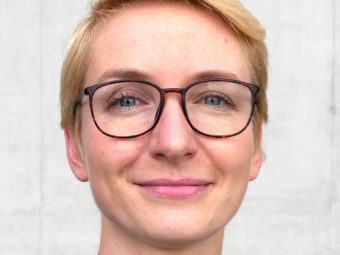Ines Schwerdtner
Flags waving, they try to storm the government building. They are stopped at the glass doors of the Bundestag, but in Washington they get through. The only differences between the two scenes were that they took place a few weeks apart and the specific context of Donald Trump’s defeat at the ballot box. Ultimately, though, these “uprisings” were similar in that they brought together a number of frustrated people from a whole host of different movements, along with right-wing true believers.
The “COVID protests” in Berlin, Leipzig, and Stuttgart are a gathering place for those who combine “criticism” of the government or the research sector with conspiracies and delusion in a way that, for a long time, made it hard to tell what motivations were behind the protest. A new study by the University of Basel1 has concluded that the main factor driving coronavirus denialism is fear. The protesters might have started out with more of a left-wing bent, but then they moved right. They share a critical stance toward science, facts, and political elites.
Thirty years after the fall of the Berlin Wall, with just as many years of neoliberal policy, a feeling of powerlessness has obviously crept in, a phenomenon that is no longer limited to eastern Germany. In the years following German reunification, it was the former East Germans who struggled with sudden sweeping change, with widespread unemployment and structural shifts. These days, the same scenario is found all across Germany, with the middle class fearing economic decline and trust in democratic institutions on the wane. Some of this powerlessness found an outlet during the pandemic in protest, up to and including the protest in front of the Bundestag in November 2020.
Ever since the start of the pandemic, there was a risk that restrictions in personal freedoms would become a rallying cry for the right. The results of the Basel study show, however, that this was not necessarily the case. Some of the protest stems from left-wing and green circles. We might infer from this that the parties of the left have failed to harness criticism of the government and uncertainty in service to a different kind of politics. A politics that is not based on delusion and conspiracy, but instead gives people a sense of security. This would mean not leaving people out of the process of deciding on political steps, and no longer feeding the feeling of powerlessness.
1Oliver Nachtwey, Robert Schäfer, Nadine Frei: Politische Soziologie der Corona-Proteste. Basel 2020 (https://osf.io/preprints/socarxiv/zyp3f/).

Ines Schwerdtner is a political scientist who lives in Berlin. She writes and publishes on the German party system and new class politics. She has been the editor-in-chief of the German-language edition of Jacobin since 2020.